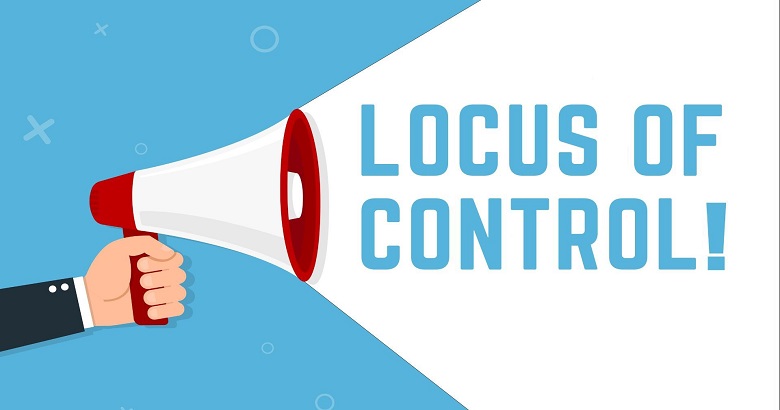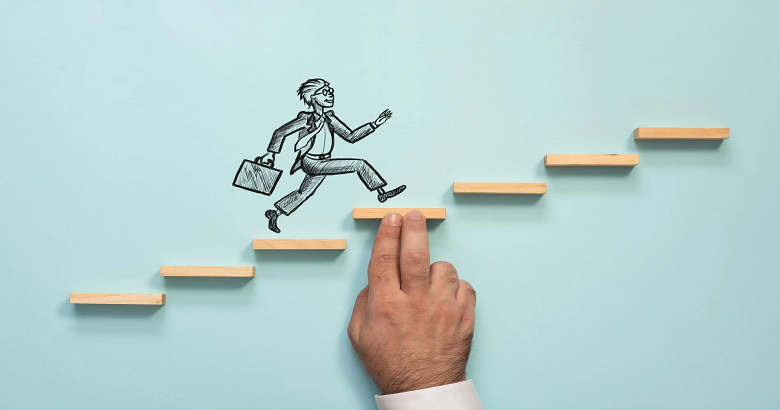
Self-accountability is the cornerstone of personal and professional integrity. It’s the ability to take responsibility for one’s actions, decisions, and their consequences. Despite its importance, many struggle with it. Understanding why people lack self-accountability can illuminate pathways to improvement and personal development.
The Fear of Failure
Fear of failure is a significant reason why people avoid self-accountability. Admitting mistakes or shortcomings can be daunting as it exposes vulnerabilities. Many individuals prefer to deflect blame onto external factors or other people to avoid this discomfort. This avoidance stems from the fear of negative judgment or repercussions, both personally and professionally.
Cultural and Societal Pressures
In many cultures, success is highly valued, while failure is stigmatised. This societal pressure can lead individuals to avoid accountability to maintain a facade of success. The fear of being perceived as incompetent or unsuccessful can deter people from owning their actions. This often results in a blame culture, where individuals prioritise protecting their image over addressing their mistakes.
The Role of Perfectionism
Perfectionism can also fuel the fear of failure. When individuals hold themselves to impossibly high standards, they may struggle to admit mistakes for fear of not measuring up. This can lead to a cycle of denial and blame-shifting, where the focus is on maintaining a flawless image rather than genuine improvement.
Lack of Self-Awareness
Self-awareness is crucial for self-accountability. It involves recognising one’s strengths, weaknesses, and the impact of one’s actions. Without self-awareness, individuals may not even realise their role in a situation, leading to a lack of accountability. Developing self-awareness requires introspection and honest reflection, which can be challenging for many.
Cognitive Dissonance
Cognitive dissonance refers to the mental discomfort experienced when holding two conflicting beliefs or attitudes. When actions contradict self-perception, individuals may experience cognitive dissonance. To alleviate this discomfort, they might distort reality or rationalise their actions, avoiding accountability to protect their self-image.
Emotional Blind Spots
Emotional blind spots can hinder self-awareness. These are areas where emotions cloud judgment, making it difficult to see the truth about oneself. Overcoming these blind spots involves emotional intelligence and a willingness to confront uncomfortable truths.
External Locus of Control

People with an external locus of control believe that external forces largely dictate their lives. This belief can lead to a lack of accountability, as individuals may feel powerless to change their circumstances. They might attribute successes and failures to luck, fate, or other people rather than their own actions. Shifting to an internal locus of control, where individuals recognise their power to influence outcomes, can enhance self-accountability.
Learned Helplessness
Learned helplessness is a condition where individuals feel incapable of affecting change due to repeated exposure to uncontrollable situations. This can lead to a lack of accountability, as individuals believe their actions are inconsequential. Overcoming learned helplessness involves building confidence and recognising one’s ability to impact outcomes through effort and decision-making.
The Role of Victim Mentality
A victim mentality can exacerbate an external locus of control. When individuals see themselves as perpetual victims of circumstance, they may struggle to take responsibility for their actions. Overcoming this mindset requires a shift in perspective, focusing on empowerment and proactive change.
The Role of Ego
The ego can be a significant barrier to self-accountability. A strong ego might prevent individuals from admitting mistakes or accepting responsibility, as doing so could threaten their self-esteem. This protective mechanism can hinder personal growth and damage relationships.
Defence Mechanisms
Defence mechanisms like denial, projection, and rationalisation can prevent self-accountability. These unconscious processes protect the ego from anxiety and guilt, but often at the cost of honesty and growth. Becoming aware of and addressing these defence mechanisms is crucial for fostering accountability.
Pride and Insecurity
Pride and insecurity often work together to block accountability. Pride can make admitting mistakes feel like a threat to one’s identity, while insecurity can lead to an exaggerated sense of failure. Balancing confidence with humility can help overcome these challenges.
Lack of Consequences
When there are minimal consequences for avoiding accountability, individuals may not feel compelled to change their behaviour. In some environments, such as workplaces or personal relationships, accountability might not be enforced, leading to a culture where blame-shifting is tolerated.
Enabling Environments
Environments that enable a lack of accountability often lack clear expectations, feedback, and consequences. Without these structures, individuals may not feel the need to take responsibility for their actions. Creating environments that promote accountability involves setting clear expectations, providing constructive feedback, and implementing fair consequences.
The Impact of Authority Figures
Authority figures who model or tolerate a lack of accountability can perpetuate the problem. Leaders who fail to take responsibility for their actions set a poor example, making it difficult for others to do so. Effective leadership involves modelling accountability and setting a standard for others to follow.
The Impact of Technology
Technology, particularly social media, can exacerbate the lack of self-accountability. The anonymity and distance provided by online platforms can lead to irresponsible behaviour, as individuals may not face immediate repercussions for their actions. This digital detachment can spill over into real-life interactions, where accountability may be similarly disregarded.
Online Anonymity
Anonymity online can create a disconnect between actions and their consequences. This detachment can encourage irresponsible behaviour, as individuals may not perceive the impact of their words or actions on others. Encouraging digital literacy and empathy can help foster accountability in online interactions.
The Spread of Misinformation
The rapid spread of misinformation online can contribute to a lack of accountability. When individuals are exposed to distorted truths or echo chambers, they may struggle to discern reality, leading to misguided beliefs and actions. Promoting critical thinking and media literacy is essential in combating this issue.
Strategies to Strengthen Self-Accountability

Addressing the lack of self-accountability involves both individual and systemic efforts. Here are some strategies to promote accountability:
Cultivate Self-Awareness
Developing self-awareness is the first step toward accountability. Regular self-reflection, mindfulness practices, and seeking feedback from others can help individuals understand their actions and their impact. Journaling and meditation can also aid in building self-awareness.
Encourage an Internal Locus of Control
Shifting to an internal locus of control involves recognising one’s ability to influence outcomes. This shift can empower individuals to take responsibility for their actions. Goal-setting, self-assessment, and celebrating small wins can reinforce this mindset.
Foster a Growth Mindset
A growth mindset emphasises learning and improvement rather than fearing failure. By viewing mistakes as opportunities for growth, individuals can become more open to accountability. Encouraging a culture of learning and resilience can support this mindset.
Create Supportive Environments
Environments that promote accountability provide clear expectations, constructive feedback, and fair consequences. Whether in the workplace or in personal relationships, fostering open communication and mutual respect can encourage individuals to take responsibility for their actions.
Address Defense Mechanisms
Understanding and addressing defence mechanisms can help individuals become more accountable. Therapy, coaching, or self-help resources can aid in recognising and managing these unconscious processes. Building emotional intelligence can also support this effort.
Promote Digital Responsibility
Encouraging responsible digital behaviour involves promoting empathy and awareness of the impact of online actions. Education on digital citizenship and fostering respectful online communities can enhance accountability in digital spaces.
Leadership and Role Models
Effective leadership involves modelling accountability and setting a standard for others to follow. Leaders and role models can demonstrate the importance of taking responsibility and creating a culture where accountability is valued and practised.
Conclusion
Lack of self-accountability is a multifaceted issue influenced by fear, societal pressures, self-awareness, and environmental factors. By understanding these underlying causes, individuals and communities can work towards fostering accountability. Embracing self-accountability not only facilitates personal growth but also enhances relationships and contributes to a more responsible society. Through self-awareness, supportive environments, and a commitment to growth, individuals can overcome barriers to accountability and thrive both personally and professionally.
Frequently Asked Questions
1. How does a lack of self-accountability affect relationships?
A lack of self-accountability can lead to trust issues and resentment in relationships. When individuals fail to take responsibility, conflicts may remain unresolved, damaging the bond between partners or friends.
2. Can self-accountability be taught in the workplace?
Yes, self-accountability can be fostered in the workplace through clear expectations, constructive feedback, and a culture that encourages ownership of actions. Leadership plays a crucial role in modelling accountability.
3. How does technology influence self-accountability?
Technology, especially social media, can diminish self-accountability by providing anonymity and detachment. This can lead to irresponsible behaviour, as individuals may not face immediate consequences for their actions online.
4. What role does emotional intelligence play in self-accountability?
Emotional intelligence is essential for self-accountability as it involves recognising and managing one’s emotions. It helps individuals understand their impact on others and encourages honest self-reflection.
5. How can someone shift from an external to an internal locus of control?
Shifting to an internal locus of control involves recognising personal influence over outcomes. This can be achieved through goal-setting, self-assessment, and focusing on personal growth and empowerment.
